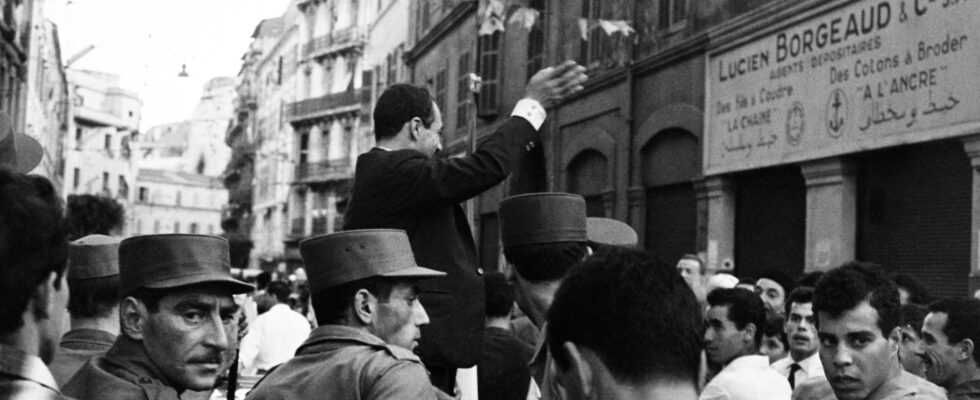Laure Dautriche, edited by Gauthier Delomez
modified to
12:32 p.m., March 18, 2022
On March 18, 1692, the Évian Accords officially and politically ended the confrontation between French forces and the Algerian nationalist movement. Sixty years later, day for day, Europe 1 offers the podcast from this Friday Here Algiers, Europe n°1, written by Pauline Jacot and Sébastien Guidis, available on all listening platforms. These historic agreements paved the way for Algeria’s independence, as the station’s archives show.
The end of eight years of war, but not violence
On the evening of March 18, 1962, General de Gaulle addressed the French from the Élysée Palace. “The prospect which opens on the advent of an independent Algeria, cooperating closely with us, satisfies the reason of France”, declares the first president of the Fifth Republic. The Evian Accords then put an end to eight years of war. They include economic aid to Algeria and safeguarding French interests in the Sahara.
The ceasefire was to take place the next day, March 19. But the violence continues between members of the French army and Algerians on the spot. “We are in a powder keg”, then says the journalist from Europe 1. “The bullets did not go far. It shoots about 25 meters to my left”, he affirms under the noise of the bullets, “like a burst. And calm returns. That’s Algiers.”
The “Yes” to independence massively voted
At the time of the ceasefire, the Secret Army Organization (OAS) redoubled its violence. The OAS wanted to torpedo the Évian agreements and launched an insurrection on March 23, 1962. Three days later, the army fired on peaceful demonstrators. It is the shooting of the rue d’Isly, which will make at least 49 dead according to the official report. A Franco-French tragedy passed over in silence by Charles de Gaulle. The same evening, the general calls for a vote “Yes” in the referendum on the Evian agreements.
The referendum on the independence of Algeria takes place on April 8, and the “Yes” camp largely wins with more than 90% of the votes. The OAS continues its unleashing of violence, as recounted by the Europe 1 correspondent on the spot, René Duval: “This morning, we are talking above all in Algiers about this attack where two little Muslim boys who were playing ball in the street, in front of their parents’ apartment, were shot.”
“We give up everything. We are desperate”
The Europe 1 correspondent asks a young witness at the scene for details. “They were four” to have fired from a car, explains a little boy. “They shot like that and they left. I don’t know how they shoot children like that, they are crazy”, continues the child at the microphone of Europe 1. The French of Algeria leave their city by the hundreds , their house. They leave for France where often no one is waiting for them, and testify at the microphone of Eugène Saccomano. “We leave like the refugees, two suitcases each, one on each arm”, says a first man.
“It’s shameful, we’re like animals,” says another woman. The journalist from Europe 1 questions her: “We are told that people abandon their cars to go to the airport, is it true?” “They are setting fires, because their cars are being taken away from them,” she replies, before evoking the “desolate” climate for Europeans in Algiers: “We are abandoning everything. We are desperate.”
In July 1962, it is the end of the war, but other battles will not take long to open, like that of the harkis, excluded in France, banished in Algeria. The same month, for the first time, Algeria hoists its flag, Algeria is independent.
